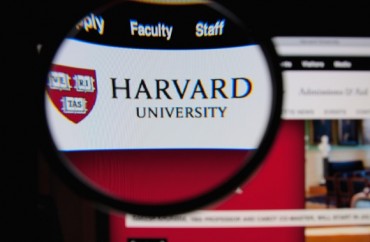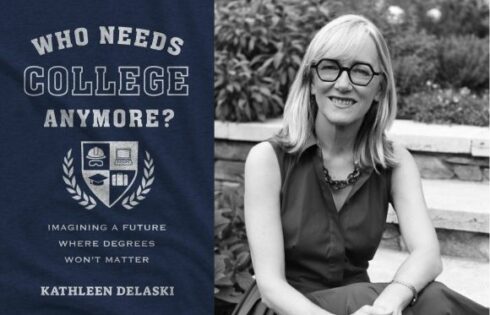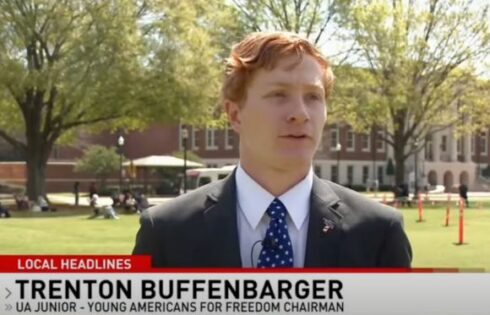
Two new research misconduct allegations lodged against Harvard University scholars have been brought to light recently, bringing the total number of academic scandals the premiere Ivy League institution is grappling with to four over the span of just two months.
These latest allegations, which made headlines in recent weeks, implicate a top Harvard University neuroscientist and various researchers at the Harvard-affiliated Dana-Farber Cancer Institute in Boston.
They came on the heels of a lengthy and detailed complaint of alleged plagiarism filed against Harvard University’s Diversity and Inclusion Officer Sherri Ann Charleston.
They also came after former Harvard President Claudine Gay resigned in early January amid numerous plagiarism accusations.
Most recently, data manipulation expert and microbiologist Elisabeth Bik shared her analysis with the Harvard Crimson on Feb. 1 that alleged top Harvard Medical School neuroscientist Khalid Shah falsified data and plagiarized images in 21 papers.
Bik, billed by the Crimson as “a leading figure among scientists concerned with research integrity,” told the student newspaper one of Shah’s former colleagues alerted her to his alleged research misconduct and she is working on a blog post that outlines the allegations against Shah in more detail.
Shah did not respond to a request from The College Fix seeking comment.
Bik, who has raised concerns about shoddy research at the Harvard-affiliated Dana-Farber Cancer Institute in 2019, also contributed to new data falsification allegations against Dana-Farber made Jan. 2 by British molecular biologist Sholto David.
David flagged 58 Dana-Farber-affiliated studies in which he found data irregularities from four Harvard and Dana-Farber-affiliated scientists that suggest manipulation.
Although the raw data for the studies was not publicly available, David was able to find scientific images in various papers that were edited or photoshopped. He pointed out that some of these research errors may have been due to simple copy-and-paste mistakes, but some may be intentional dishonesty.
He said in an interview with The Guardian: “How many errors are acceptable before we think something more worrying is happening? … If you comb through a lot of people’s papers you will find errors, but there has to be, at some point, a limit to how many sloppy mistakes you make before it’s something else, that it’s not something you can dismiss as an honest error.”
None of the researchers David accused of plagiarism responded to a request for comment from The College Fix.
In response to the allegations, Dana-Farber’s research integrity officer, Barrett Rollins, said in a statement to Science Insider that the institute will be requesting medical journals to retract six papers and correct 31 others in which the institute’s researchers had “primary responsibility for the potential data errors.”
Rollins added, “The presence of image discrepancies in a paper is not evidence of an author’s intent to deceive.”
According to The Guardian, Rollins himself is an author of some of the papers in question, and has been rescued from investigations pertaining to his own work.
With the allegations against Shah and Dana-Farber, there have now been a total of four research misconduct scandals over the span of just two months at Harvard.
Last year, Harvard Business School Professor Francesca Gino was also accused of data falsification, but has denied the allegations and filed a defamation lawsuit.
When asked about the implications of the latest allegations for Harvard, and for academia more broadly, the president of the National Association of Scholars, Peter Wood, said in a statement to The College Fix that if they are substantiated they “mean that one of the most important research institutions in the United States and the whole world has been guilty of negligence in its oversight of scientific findings.”
Wood said false reporting in the medical field has a spiral effect, sending other researchers on false trails and wasting precious time in the search for valid medical interventions.
It also squanders large amounts of money “by supporting further research that will lead nowhere” as well as “crushes the hopes of patients who have been misled into believing that there is progress where there is no progress,” Wood said via email.
“In addition, such false reporting feeds the growing skepticism among Americans of our whole scientific enterprise, largely funded by the federal government and supported as well by tax-exempt foundations,” Wood said.
The National Association of Scholars in 2018 sounded the alarm on what it calls the “irreproducibility” of much scientific research, calling it a “crisis” at the time.
“Distrust of the medical establishment widened and deepened by how medical authorities manipulated the Covid-19 crisis,” Wood said. “Every new report of scientific misconduct, especially at elite institutions, drives this wedge of distrust even deeper.”
MORE: Watchdog files accreditation complaint against Harvard over plagiarism scandal
IMAGE: Gil C. / Shutterstock
Like The College Fix on Facebook / Follow us on Twitter





Please join the conversation about our stories on Facebook, Twitter, Instagram, Reddit, MeWe, Rumble, Gab, Minds and Gettr.